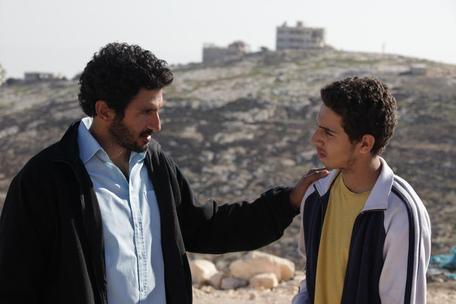The depressed tones of director Yuav Adler’s visual palette are the most memorable aspect of Bethlehem. Just a couple still images will show that the colors highlight the experience of Israeli-Palestinian conflict, as they elicit the hardened depression of people in constant, seemingly never-ending conflict. There isn’t the usual sense of immediacy when things go awry; shocking events are too normal to really strike these human beings with terror.
Bethlehem is about the relationship between a young Palestinian informant and an Israeli military officer. Moral conflicts related to trust and tribalism arise as the relationship develops. Adler’s approach appears to be an attempted balance of serious introspection on the conflict and exciting plot elements. The entertaining elements unfold like those in espionage thrillers. I’m generally the type of viewer that prefers a film to focus on mundane, small details rather than exciting plot. As a result, Bethlehem’s attempts at watch-ability were more boring than invigorating, however others viewers may react differently.
Tonally, Bethlehem pulses with anger, frustration and sadness. Characters, as always with Israeli-Palestinian conflict, are faced with impossible moral conflicts. In itself this is nothing new, but Adler provides more humanity and affection than I’m used to seeing when visiting this topic. The sense of harsh tribalism certainly comes across and the moral actions of different characters as it relates to trust may surprise you (I can’t explain more without spoilers).
Overall the film is a moderate success, but it feels too much like a movie to be profoundly moving. I didn’t get a sense of characters outside of this conflict. The roundness that sense provides makes characters truly believable by contextualing their actions and ultimately their humanity. Bethlehem is a very good film, but I don't imagine I'll remember it well come the end of 2014.
Grade: B/B+

 RSS Feed
RSS Feed
